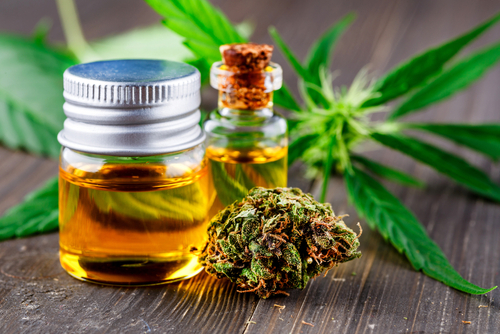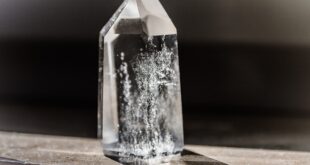
U.S., May 12, 2020 (MINISTRY OF HEMP)- We’ve all heard about the benefits of organic fruits and vegetables but did you know that, when it comes to CBD, it makes a big difference how hemp is grown?
While every plant absorbs nutrients from the soil, hemp is a powerful “bioaccumulator.” That means it’s especially good at absorbing toxins, including heavy metals, from the ground. That’s great news if you want to clean the soil with hemp. It also means CBD consumers need to be careful. We don’t want to take unwanted chemicals or toxins into our bodies with our CBD supplements.
With over 1500 different manufacturers, the CBD industry is oversaturated with cheap, low-quality, and sometimes unsafe products. There are countless brands with dishonest labels, improper health claims, contaminated hemp extracts, and artificial ingredients. So how do you know where to start? To avoid these scary realities, take the first step with CBD made from certified organic hemp. Not only is it a better product, but it’s better for your body and the planet.
Unfortunately, it’s still hard to get full organic certification for hemp. So a lot of companies use terms like “organically-grown” or “grown using organic methods.” In this article, we’ll talk more about what the difference is between organic methods and actual certified organic hemp.
The destructive aspects of conventional farming
Many CBD manufacturers source their hemp through conventional farming which has many destructive aspects.
One of these aspects is synthetic fertilizers. Synthetic fertilizers are water-soluble and need to be reapplied after every rain. With this constant reapplication, they’re wrecking the soil composition for future crops. Any excess fertilizer then runs off into waterways causing an accumulation of cadmium and other heavy metals.
A powerful example of this is “dead zones”, areas where few to no organisms can survive in their oxygen-depleted, also known as hypoxic, waters. These conditions are a reaction to excessive nutrient pollution, and one of the contributing factors are man-made synthetic fertilizers.
While it’s true that hemp, in general, requires fewer pesticides than some other crops, it still depends on rich, well-fertilized soil to grow to optimal health.
The benefits of organic farming
Did you know that organic farming can actually increase the amount of soil each year?
Healthy soil better binds together, preventing runoff and erosion. This involves improving soil fertility by maintaining and building a fertile living soil through the application of frequent organic matter, such as compost and manures.
Our planet’s soil is an ecosystem, because not only does it hold roots, but it serves as a life source for bacteria, fungi, insects, and animals. Organic farming’s lack of pesticides and insecticides is healthier for bugs and plant diversity. In return, organic plants add more nutrient density to the soil, because they don’t have any artificial help in their defense against nature.
Additionally, the higher quality soil does a better job of maintaining water. Organic farmers often spread organic mulch and plant cover crops, which further encourages water retention. With water scarcity becoming an increasingly prominent issue, it’s hard not to feel that it’s our obligation to do what we can to conserve water.
Not all CBD products are created equal
There have been many cases of contaminated and tainted CBD products. Sometimes these are byproducts of conventional farming. Other times, it’s simple carelessness on a brand’s part.
Heavy metals, molds, pesticides, and chemical residues have all been found in finished products. That’s because hemp is a phytoremediator. It pulls up toxins and heavy metals in the soil when present and grows very fast.
When grown on soil that is not tested for toxins, we run the risk of our hemp plants (and as a result, our CBD) containing those toxins. When grown on a certified organic farm, we can be sure the soil is clean and free of harmful chemicals.
‘USDA Organic Hemp’ vs. ‘Organically Grown’: What’s in a CBD label?
Terms like “organically-grown” are touted on packaging and marketing materials to entice buyers who are looking for authentic CBD and hemp products.
While there are alternative state-level and private certifications available to fill the organic and organically grown gap, the USDA will only provide organic certification for qualified industrial hemp. This is a lengthy and somewhat complex process.
For hemp to be USDA Organic certified there are rigorous tests, trials, and fees. First, the farm must adopt organic practices if they haven’t already. They must transition from conventional farming methods to organic and allow their soil composition to change, which takes 3 years.
Next, they must choose an authorized “certifying agent” to grant them the USDA certification. To achieve this grant, the farm must create an Organic System Plan, or OSP, which is the foundational document which the certifying agent will use. The OSP outlines the operation, clearly delineating how the operation is in compliance with organic standards and what precautions are in place to prevent contamination and commingling.
Once the OSP is completed, an inspection occurs. It’s at this point that the inspector will compare the operation to the OSP to validate that it is being strictly followed. Upon approval, the certifying agent issues an organic certificate. This certificate not only determines the organic quality of the product’s sourcing but the quality of the hemp’s industrial processes as well.
You can see that actual USDA organic certification is a very rigorous process. Ultimately, this creates hemp that should be cleaner and safer for consumers.
Organic CBD & third-party lab tests
The quality and potency of your CBD depend on the entire process—from seed to self.
Among the last stages of quality control is a test done by an independent laboratory. To certify the product’s authenticity, transparency, and quality, this series of testing is crucial. Third-party lab testing is when a private party, not affiliated with the manufacturer or distributor performs a scientific analysis of a product. These tests verify that CBD is clean. Most tests will show the potency (strength) of the product, but make sure the brand is testing for toxins too.
With a lack of federal regulation, there is no standardized process for testing CBD. That’s why, at Hemp Luxe, we craft our products using only USDA Certified Organic Hemp. We also perform third party testing for harmful toxins by an industry-leading lab.
If a CBD brand doesn’t make it easy to access these third-party lab tests, also known as a “Certificate of Analysis” or COA, then you should move on to another brand that does.
Organic hemp means a cleaner CBD experience
By choosing certified organic hemp, we can feel proud to avoid pesticides. The products we consume will be better for the planet. By buying CBD made from organic hemp, we know that our purchase encourages soil growth. We can feel confident that our products are clean.
We get it, buying CBD can be confusing. It gets easier if you do a little research into the company you’re buying from. For many of us, looking for USDA-certified organic hemp is the first step.
 Investment value finders Investment value finders
Investment value finders Investment value finders



